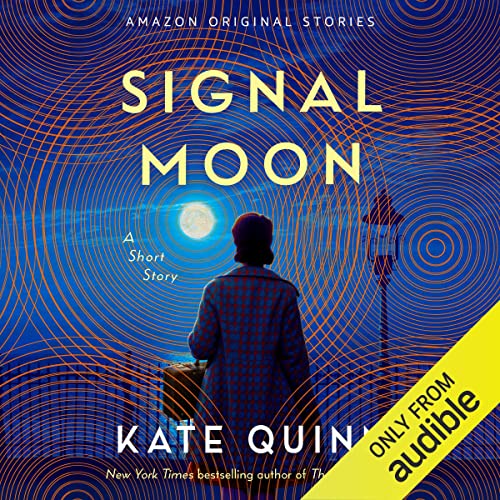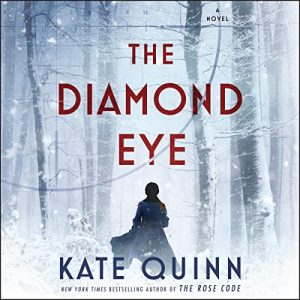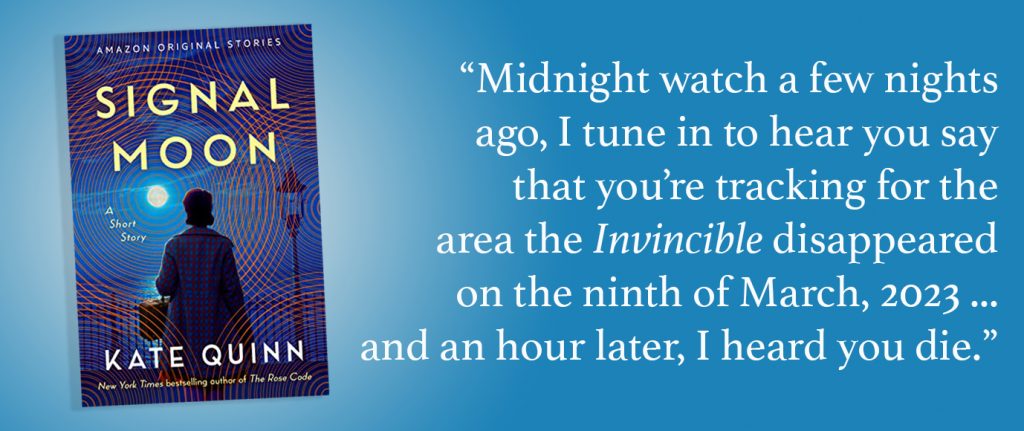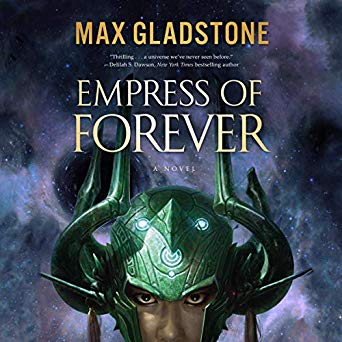 The Hermit Next Door by Kevin Hearne
The Hermit Next Door by Kevin Hearne Narrator: Annalee Scott
Format: audiobook, ebook
Source: purchased from Amazon, purchased from Audible
Formats available: hardcover, ebook, audiobook
Genres: science fiction, urban fantasy
Pages: 96
Length: 2 hours and 43 minutes
Published by Audible Audio, Subterranean Press on June 30, 2024
Purchasing Info: Author's Website, Publisher's Website, Amazon, Barnes & Noble, Kobo, Bookshop.org, Better World Books
Goodreads
Kevin Hearne, author of the acclaimed Iron Druid Chronicles, returns with an otherworldly new novella!
Newly widowed and trying to cope with her grief, Winnie Mae Chisholm moves from Tennessee with her teenage son, Pax, to Oregon, hoping the change will let them both heal and move on. She’s warned when buying their new home that the next door neighbor, Mr. Fisher, is a famous recluse and no one has seen him in years, but that’s fine with her—she’s looking for quiet.
She’s not going to get it, however, because when Pax meets the neighbor, he discovers that the reason Mr. Fisher hides from the world is that he isn’t actually from this world. He’s been stranded for decades and he’s trying to get home, and he could really use some help.
Abruptly part of the best-kept secret on the planet, Winnie Mae and Pax have to protect Mr. Fisher from a nosy neighbor who would ruin his work and doom him to die among aliens, but they also have to ask How far would they go to escape their grief? Would another world be far enough?
My Review:
I picked this back up after starting it before we left on vacation because I really wanted to review a book I read while we were away – and I will – but Kevin Hearne’s Candle & Crow won’t be out until October 1 and it’s just too soon to post that now – no matter how much I want to.
But I was still in the mood for his style, and, well, even the audiobook for The Hermit Next Door is blissfully short. I’m also still a bit jet-lagged, and the result is the review you are about to read.
The idea of this story has been done before – that the recluse next door is either really creepy, from REALLY far away or a bit of both. What made this a bit different was the way that Winnie Mae Chisholm and her son Pax came to this little bend in the Willamette River and not just what they found there.
The story begins as an escape – and Winnie Mae and Pax just keep right on escaping – getting themselves farther away than the ever imagined from the tragic death of Winnie Mae’s husband and Pax’s dad, Benny Chisholm, back home in Tennessee.
Too many memories, and too many grief casseroles drove them out of their former home. The settlement money from the accident and the sale of their previous house got them to Oregon.
At first, nobody’s happy. Winnie Mae because happiness is the last thing she expects to find again, and Pax because he’s still grieving, he wasn’t given any choice in the matter, and he’s a teenager. Which of those three things is at the biggest weight on his heart and soul changes every day but they’re all part of it, all the time, and the situation isn’t looking like it’s going to get any better any time soon.
Because grief doesn’t – and neither does being a teenager.
The house is lovely, the river is quiet and peaceful, and the neighbors are, honestly, a lot. Winnie Mae can identify the types, knows just what she has to do to give her invasive, intrusive, gossipy across the street neighbor just enough and no more to not think she and Pax are TOO weird while still getting them to leave the Chisholms as alone as the woman’s nature is capable of managing.
But the situation changes entirely and completely – actually, all the situations take a sharp left turn into the weird, wacky and wonderful – when Pax meets their reclusive next-door-neighbor Mr. Fisher.
Who is, quite literally, out of this world. And wants to get back home – if he can just get a little bit of help from Pax and his very reluctant, somewhat creeped out, not quite totally losing her shit, depressed and disaster-projecting and spiraling mother, Winnie Mae.
A woman who, in spite of having lost pretty much all of her faith in things ever getting better ever again is going to have to take an absolutely ginormous leap of faith over the chasm of her disbelief in order to keep her son safe and maybe, just maybe, find a bit of peace and even happiness in a place she never once imagined she could even imagine.
 Escape Rating B: I finished this book with a lot more mixed feelings than I expected. I thought I would just love it (spoiler: I did love Candle & Crow). In the end, I did like The Hermit Next Door, but I middled in directions I just didn’t expect to go.
Escape Rating B: I finished this book with a lot more mixed feelings than I expected. I thought I would just love it (spoiler: I did love Candle & Crow). In the end, I did like The Hermit Next Door, but I middled in directions I just didn’t expect to go.
Your reading and listening mileage may both vary.
The idea of Mr. Fisher and his journey reminded me a LOT of Simon R. Green’s Ishmael Jones series, and that was not a place I expected to be at all. Ishmael Jones is more creepy horror adjacent mixed with twisted country house mystery, while Mr. Fisher is more like an E.T. who needs to phone home, but they both start from the same place, a being from another world who is stranded on this Earth and is having a difficult time going home and has to make some equally difficult decisions about dealing with that particular dilemma.
Howsomever, Ishmael Jones at least looks human. Mr. Fisher is a giant otter from an Earth that took a different evolutionary path down the “trousers of time”.
One of the things that I personally found a bit off-putting was that the narrator for the audiobook, Annalee Scott, sounds an awful lot like Khristine Hvam, the narrator for the Junkyard Cats series. And that was a bit of a mind-screw, as Shining Smith in the Junkyard Cats series kicks ass and takes names with wild abandon and lots of gunfire, while Winnie Mae Chisholm goes into panicked disaster spirals at every turn. The characters are just VERY far apart but the similarity in the narrators’ voices made my mind try to equate them which simply isn’t possible. At all. Ever. In ANY way.
Very much on my other hand – or ear – I did love the SFnal ending. I was fully expecting it, but that doesn’t mean it still wasn’t fun. I’ll admit that I particularly liked the idea that the nosey neighbor might have gotten exactly what she deserved. She certainly had the option to save herself, but I can’t help but get a bit of glee out of the thought that she probably couldn’t resist doing what she was explicitly told not to. We’ll never know but a girl can dream.
What made the story work in the end was that Winnie Mae and Pax find happiness in a way that they were not expecting – and in a way that doesn’t attempt to pass over or by the depths of the grief that sent them on this journey in the first place.
There were also a couple of references to some interesting SFnal stories that shouldn’t have gotten near this one but did anyway in surprising and delightful ways. There’s just a touch of John Scalzi’s Kaiju Preservation Society that I was not expecting at all, as well as a hint of Edward Ashton’s Fourth Consort that goes in a completely different direction from The Hermit Next Door but has some unexpected but fascinating similarities along its way.

 Tamam Shud: A Phryne Fisher Mystery by
Tamam Shud: A Phryne Fisher Mystery by 
 Junkyard War (Shining Smith #3) by
Junkyard War (Shining Smith #3) by  But Shining is not the only human queen, because every true hero – especially if that’s not remotely what they want to be – creates their own archenemy – or the other way around. Clarisse Warhammer targeted Shining all the way back in
But Shining is not the only human queen, because every true hero – especially if that’s not remotely what they want to be – creates their own archenemy – or the other way around. Clarisse Warhammer targeted Shining all the way back in  Which means two things. First, the books pile layer upon layer building Shining’s world, so you really need to start at the beginning in
Which means two things. First, the books pile layer upon layer building Shining’s world, so you really need to start at the beginning in  Haven by
Haven by 
 And if someone is interested in historical fiction about this time period in Ireland in general and the Catholic Church in Ireland at this period in particular, I’d recommend the
And if someone is interested in historical fiction about this time period in Ireland in general and the Catholic Church in Ireland at this period in particular, I’d recommend the  Signal Moon: A Short Story by
Signal Moon: A Short Story by  While Matt’s more frank and frequently profane dialog, along with the desperation of his own internal monologue, gives the reader or listener a clear portrait of who he is and what drove him to become the person – and the officer – that he is on the brink of what could be – briefly – his very own war.
While Matt’s more frank and frequently profane dialog, along with the desperation of his own internal monologue, gives the reader or listener a clear portrait of who he is and what drove him to become the person – and the officer – that he is on the brink of what could be – briefly – his very own war.
 Junkyard Bargain (Shining Smith #2) by
Junkyard Bargain (Shining Smith #2) by  The A.I. Who Loved Me by
The A.I. Who Loved Me by  Empress of Forever by
Empress of Forever by  Legion (Legion, #1) by
Legion (Legion, #1) by  Which he insists that he is. Normal, that is. Stephen Leeds believes that he is sane and that his aspects are the various forms of crazy. But whatever they are, they do have personalities and specialties of their own, and without the correct specialist Stephen doesn’t think he has access to parts of his genius.
Which he insists that he is. Normal, that is. Stephen Leeds believes that he is sane and that his aspects are the various forms of crazy. But whatever they are, they do have personalities and specialties of their own, and without the correct specialist Stephen doesn’t think he has access to parts of his genius.